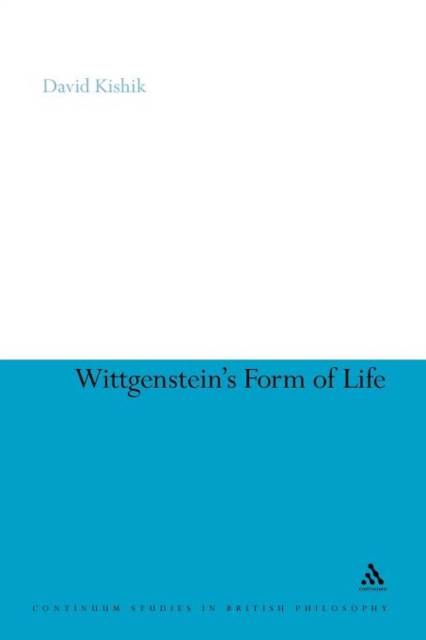
- Retrait gratuit dans votre magasin Club
- 7.000.000 titres dans notre catalogue
- Payer en toute sécurité
- Toujours un magasin près de chez vous
- Retrait gratuit dans votre magasin Club
- 7.000.0000 titres dans notre catalogue
- Payer en toute sécurité
- Toujours un magasin près de chez vous
Description
Wittgenstein's Form of Life reveals the intricate relationship between language and life throughout Ludwig Wittgenstein's work. Drawing on the entire corpus of his writings, David Kishik offers a synoptic view of Wittgenstein's evolving thought by considering the notion of form of life as its vanishing center.
The book takes its cue from the idea that 'to imagine a language means to imagine a form of life', in order to present the first holistic account of Wittgenstein's philosophy in the spirit of a new wave of interpretations, pioneered by Stanley Cavell, Cora Diamond and James Conant. It is also an enticing contribution to the rising discourse revolving around the subject of life, led by the recent work of Giorgio Agamben. Standing on the threshold between the Analytic and the Continental philosophical traditions, Kishik shows how Wittgenstein's philosophy of language points toward a new philosophy of life, thereby making a unique contribution to our ethical and political thought.
Spécifications
Parties prenantes
- Auteur(s) :
- Editeur:
Contenu
- Nombre de pages :
- 158
- Langue:
- Anglais
- Collection :
- Tome:
- n° 106
Caractéristiques
- EAN:
- 9781441171993
- Date de parution :
- 05-01-12
- Format:
- Livre broché
- Format numérique:
- Trade paperback (VS)
- Dimensions :
- 156 mm x 234 mm
- Poids :
- 231 g

Les avis
Nous publions uniquement les avis qui respectent les conditions requises. Consultez nos conditions pour les avis.






